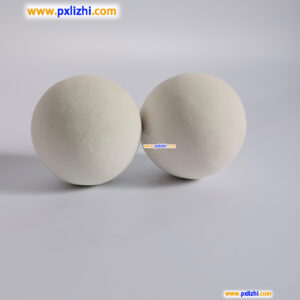
# Inert Ceramic Ball Applications in Industrial Processes
## Introduction to Inert Ceramic Balls
Inert ceramic balls are widely used in various industrial processes due to their excellent chemical stability, high mechanical strength, and resistance to extreme temperatures. These small spherical ceramic pieces play a crucial role in improving efficiency and maintaining process stability across multiple industries.
## Key Properties of Inert Ceramic Balls
The effectiveness of inert ceramic balls in industrial applications stems from their unique properties:
– High temperature resistance (up to 1600°C)
– Exceptional chemical inertness
– Superior mechanical strength
– Low water absorption
– Excellent thermal shock resistance
– Resistance to corrosion and abrasion
## Major Industrial Applications
### 1. Petrochemical Industry
In the petrochemical sector, inert ceramic balls serve as:
Support media for catalysts in reactors and towers
Bed support in hydrocrackers and reformers
Distributors for liquids and gases in packed columns
Protective layers above catalyst beds
### 2. Chemical Processing
Chemical manufacturers utilize inert ceramic balls for:
Absorption and distillation processes
Gas purification systems
Acid production plants
As support media in high-temperature reactions
### 3. Environmental Protection
In environmental applications, these ceramic balls help with:
Waste gas treatment systems
Flue gas desulfurization
Wastewater treatment processes
As packing material in scrubbers and biofilters
Keyword: inert ceramic ball
### 4. Metallurgical Industry
Metallurgical processes benefit from inert ceramic balls in:
High-temperature furnace linings
Metal heat treatment operations
As insulation material in smelting processes
Protective layers in metal refining
## Advantages Over Alternative Materials
Compared to other packing materials, inert ceramic balls offer:
Longer Service Life
Their durability reduces replacement frequency and maintenance costs.
Improved Process Efficiency
The uniform shape and size ensure better flow distribution and contact efficiency.
Wider Temperature Range
They maintain structural integrity in both extremely high and low temperature conditions.
Chemical Compatibility
Resistant to most acids, alkalis, and organic solvents encountered in industrial processes.
## Selection Considerations
When choosing inert ceramic balls for industrial applications, consider:
Required size (typically 3mm to 50mm diameter)
Specific chemical resistance needs
Operating temperature range
Pressure conditions
Required mechanical strength
Thermal shock requirements
## Future Trends
The demand for inert ceramic balls continues to grow with:
Expansion of petrochemical and chemical industries
Increasing environmental regulations requiring better treatment systems
Development of new high-temperature industrial processes
Advancements in ceramic material technology
Inert ceramic balls have become indispensable components in modern industrial processes, offering reliable performance under challenging conditions. Their versatility across multiple industries ensures continued importance in industrial applications for years to come.